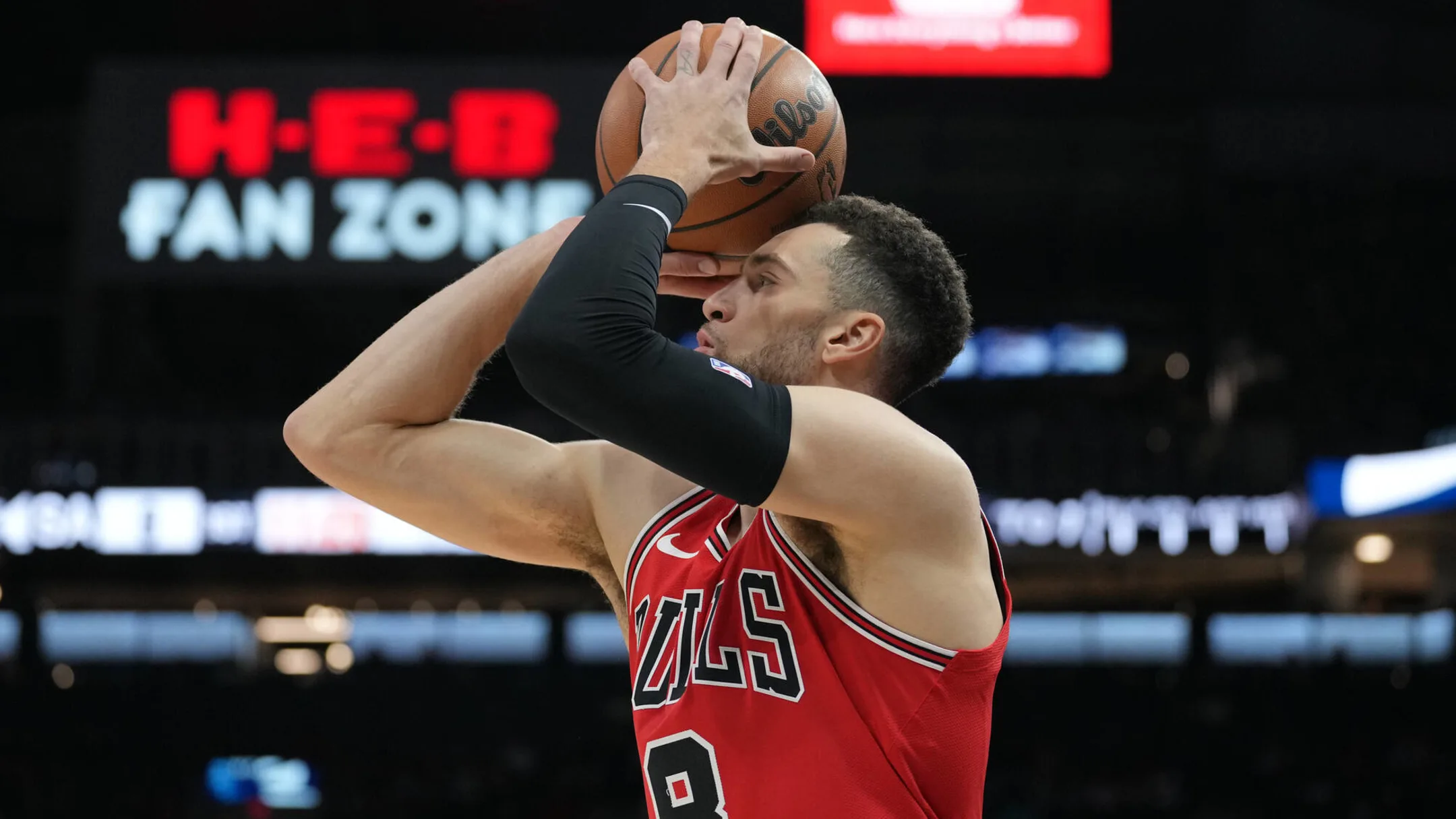Arturas Karnisovas, the executive vice president of basketball operations for the Chicago Bulls, recently indicated his expectation that Zach LaVine will remain with the team as they approach the opening of training camp. Karnisovas shared this sentiment with team beat writers, as reported by K.C. Johnson of NBC Sports Chicago on July 15. Despite persistent trade rumors surrounding the two-time All-Star, Karnisovas’s statement suggests a current commitment to retaining LaVine in the Bulls’ lineup.
The NBA’s training camps are scheduled to commence in late September and early October, providing a window for potential changes in player rosters across the league, including those involving LaVine amidst a relatively stagnant trade market.
Speculation about LaVine’s availability for trade has been circulating since the 2023 trade deadline, reflecting the Bulls’ openness to considering offers for the talented guard.

Greg Swartz of Bleacher Report recently proposed a three-team trade scenario that could potentially relocate LaVine closer to his offseason residence in Los Angeles, benefiting both him and the Bulls financially and strategically. In Swartz’s hypothetical trade, the Bulls would send LaVine along with two second-round draft picks acquired from the Sacramento Kings in exchange for a package from the Los Angeles Clippers and Denver Nuggets.
Under Swartz’s proposal, the Bulls would receive Bones Hyland, Norman Powell, P.J. Tucker, and Zeke Nnaji from the Clippers and Nuggets. This exchange, according to Swartz, would alleviate the Bulls of LaVine’s substantial contract while providing them with a versatile group of players who could contribute immediately or serve as valuable trade assets in the future.
Hyland, who averaged 6.9 points per game in the 2023-24 season with the Clippers, is nearing the end of his current contract with a manageable cap hit. Powell, in the midst of a multi-year contract, has shown durability with a career-high number of appearances last season despite his statistical output dipping slightly. Tucker, acquired by the Clippers from the Philadelphia 76ers, offers veteran leadership and defensive prowess, crucial qualities for a team in transition. Nnaji, coming off a career-high season with the Nuggets, represents a young talent with potential growth under the Bulls’ development program.
Financially, Swartz’s proposal would reduce the Bulls’ payroll for the upcoming seasons, potentially saving them significant amounts in the years following LaVine’s departure. While LaVine is currently under a substantial contract, the incoming players in Swartz’s trade offer have contracts that provide flexibility beyond the immediate season, aligning with the Bulls’ long-term financial planning.
However, executing this trade would necessitate roster adjustments for the Bulls, who are currently committed to 14 guaranteed contracts as of mid-July, as reported by Spotrac. Managing the roster effectively would be crucial to accommodating the incoming players and maximizing their contributions on the court.
In conclusion, while Karnisovas has expressed his intent to retain LaVine for now, the trade proposal by Swartz illustrates the potential benefits of exploring alternatives for both LaVine and the Bulls. As the NBA trade deadline approaches, the Bulls will continue to assess their options carefully, balancing the immediate impact with long-term strategic goals for the franchise’s growth and competitiveness in the league.

